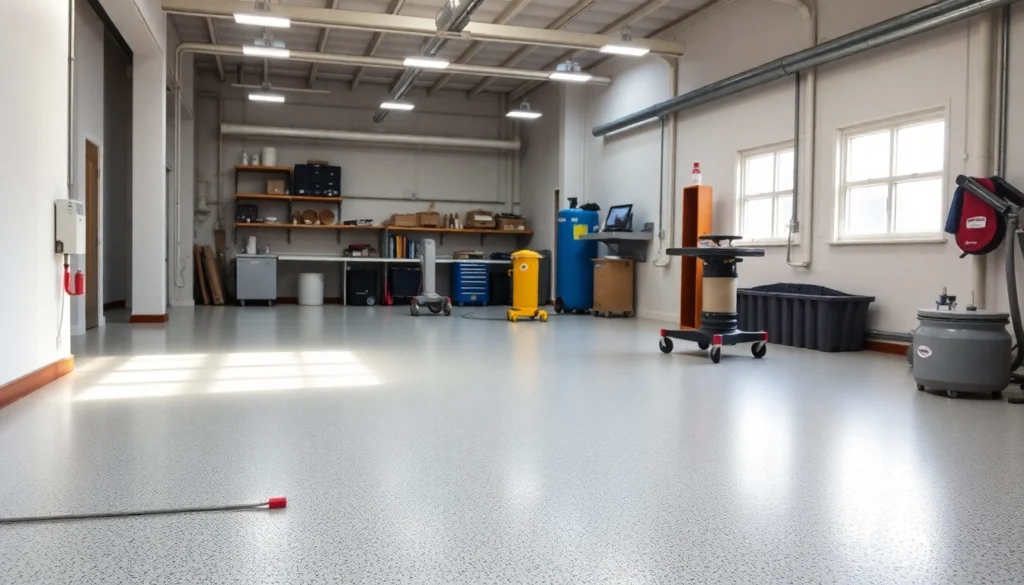
Understanding the Importance of Floor Preparation in Birmingham
Proper floor preparation is the foundation for achieving durable, aesthetically pleasing, and long-lasting flooring installations. In Birmingham’s diverse construction environment—ranging from residential renovations to complex industrial projects—effective floor preparation ensures that the underlying surface is optimized for subsequent flooring systems. For professionals and property owners alike, understanding the critical aspects of floor prep can mean the difference between a flawless finish and costly remedial work down the line.
Floor preparation Birmingham is more than just a preliminary step; it’s a strategic process that safeguards your investment, enhances adhesion, and extends the lifespan of your flooring.
Why Proper Floor Preparation Matters for Durability
A well-prepared surface guarantees that adhesives, coatings, and finishes bond securely to the substrate. Improper preparation can lead to issues such as peeling, cracking, uneven surfaces, and moisture problems, which compromise the structural integrity and appearance of the flooring. In Birmingham, where climate fluctuations and varied building ages pose unique challenges, meticulous preparation becomes even more vital.
Common Floor Types Requiring Preparation in Birmingham
Various flooring types—such as epoxy coatings, resin floors, hardwood, laminate, tiles, and carpet—demand specific surface conditions to achieve optimal results. Industrial facilities often utilize resin and epoxy coatings that require surfaces free of laitance, oils, and debris. Residential projects involving hardwood or laminate flooring require a smooth, level surface, often necessitating grinding or leveling compounds.
Impact of Poor Preparation on Final Results
Skipping or rushing the floor preparation process can result in failure modes including delamination, moisture entrapment, and premature wear. These issues not only incur additional costs but can also jeopardize safety and utility, especially in commercial or industrial environments where floors bear significant loads. Ensuring quality prep upfront mitigates these risks and improves the overall performance of the flooring system.
Key Techniques and Tools for Effective Floor Preparation
Diamond Grinding and Shot Blasting Methods
These are the predominant mechanical preparation techniques used in Birmingham for industrial and commercial floors. Diamond grinding involves the use of abrasive diamond tools to remove thin layers of material, smooth rough surfaces, and create a uniform profile for coating adhesion. Shot blasting utilizes high-velocity steel media to clean and profile concrete surfaces efficiently, eliminating contaminants, laitance, and previous coatings.
Laitance Removal and Surface Cleaning
Laitance is a weak, chalky layer formed during concrete curing, which can impair adhesion. Its removal is crucial, especially before applying epoxy or resin systems. Techniques such as acid etching (when appropriate), mechanical grinding, or blast cleaning effectively eliminate laitance. Post-cleaning, the surface should be thoroughly vacuumed to remove dust and debris, ensuring a contaminant-free base.
Choosing the Right Equipment for Specific Surfaces
Selecting between scarifiers, grinders, or blast systems depends on surface condition, project scale, and type of flooring material. For instance, concrete surfaces with heavy coatings may require shot blasting, while thin overlays necessitate precision grinding. Local contractors in Birmingham often tailor their approach based on detailed assessments to optimize results.
Step-by-Step Guide to Floor Preparation in Birmingham
Assessing Surface Condition and Planning
The preparatory process begins with a comprehensive assessment—checking for cracks, moisture levels, contamination, and existing coatings. Consultation with a professional helps determine the appropriate techniques, tools, and materials. Planning includes scheduling the work to minimize downtime and coordinate with other construction activities.
Executing Surface Preparation Techniques
Preparation involves several sequential steps: cleaning, removing laitance or existing coatings if necessary, leveling uneven areas, and profiling the surface to promote adhesion. For concrete floors, diamond grinding and shot blasting are commonly employed, followed by detailed cleaning to ensure debris-free surfaces. Moisture mitigation, such as sealing or vapor barriers, should be integrated where high moisture levels are detected.
Inspection and Final Checks Before Coating
Before proceeding with floor coatings, inspect the prepared surface for residual dust, levelness, and mechanical profile adherence. Moisture testing and pull-off adhesion tests validate readiness. A smooth, clean, and properly profiled surface sets the stage for successful flooring installation.
Choosing the Right Flooring Contractor in Birmingham
Questions to Ask Before Hiring
Inquire about the contractor’s experience with specific floor types, methods used, and past project portfolios. Request references and detailed quotes to understand cost breakdowns and procedures.
Evaluating Experience and Certifications
Certified professionals with industry accreditations, such as membership in the National Floor Safety Institute or similar bodies, demonstrate commitment to quality and safety standards. Proven track records in Birmingham’s market indicate familiarity with local building codes and environmental conditions.
Understanding Cost Estimates and Timeline
Costs vary based on surface conditions, size, and chosen flooring material. Expect prices ranging from moderate to premium, particularly for complex or industrial projects. Clear timelines and scope definitions prevent misunderstandings and ensure timely project completion.
Benefits of Professional Floor Preparation Services
Enhancing Adhesion and Longevity of Coatings
Proper preparation ensures that coatings bond effectively, significantly reducing risks of delamination and premature failure. In Birmingham’s climate, this extends the lifespan of floors, whether epoxy, resin, or hardwood.
Reducing Long-Term Maintenance Costs
Investing in quality prep minimizes issues such as cracking, moisture infiltration, and surface wear, which contribute to costly repairs and maintenance over time.
Achieving a Perfect Finish for Commercial and Industrial Spaces
Professional prep results in smooth, level surfaces that enhance aesthetics and functional safety. This is particularly critical in high-traffic or industrial environments, where floor performance directly impacts operational efficiency.







